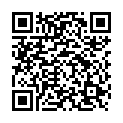|
|
|
| Module code: MEB_24_A_2.05.KWL |
|
|
3V+1P (4 hours per week) |
|
4 |
| Semester: 2 |
| Mandatory course: yes |
Language of instruction:
English |
Required academic prerequisites (ASPO):
Lab participation and lab report |
Assessment:
Written exam (120 min)
[updated 13.11.2024]
|
MEB_24_A_2.05.KWL (P241-0459, P241-0460) Mechanical Engineering, Bachelor, SO 01.10.2024
, semester 2, mandatory course
|
60 class hours (= 45 clock hours) over a 15-week period.
The total student study time is 120 hours (equivalent to 4 ECTS credits).
There are therefore 75 hours available for class preparation and follow-up work and exam preparation.
|
Recommended prerequisites (modules):
None.
|
Recommended as prerequisite for:
|
Module coordinator:
Prof. Dr. Moritz Habschied |
Lecturer:
Prof. Dr. Moritz Habschied
[updated 28.02.2025]
|
Learning outcomes:
After successfully completing this module, students will be familiar with the production conditions, processing and properties of cast iron materials, various steels, light metal alloys, plastics and their possible applications. Their knowledge of microstructures will enable them to select suitable materials for given problems. Students will be able to estimate the influence of temperature on properties and select suitable heat treatments to achieve desired properties. In practical exercises, they will learn to work in groups to acquire new knowledge and to work on interdisciplinary test tasks. They will be able to reflect their opinions and defend them with factual arguments.
Students will improve their subject-related technical English skills. Students will know the subject-specific English terms.
[updated 28.02.2025]
|
Module content:
1.0 Cast iron materials
2.0 Material influence on manufacturing/non-ferrous metals
3.0 Material selection methods
4.0 Plastics
5.0 Cyclic material stress
Lab work: - Material designations - Influence of materials on production technology - Tensile test on polymeric materials
[updated 15.01.2024]
|
Teaching methods/Media:
Interactive, seminaristic lecture, practical training in the lab in small groups
[updated 13.11.2024]
|
Recommended or required reading:
Online and library Bargel/Schulze: „Werkstoffkunde“, Springer-Verlag, Berlin, Heidelberg, New York, 12. bearb. Auflage 2018 Weißbach W., Dahms M., Jaroschek C.: „Werkstoffe und ihre Anwendungen: Metalle, Kunststoffe und mehr“, Springer Vieweg; 20., überarb. Auflage 2018 Only library Läpple, V.: „Wärmebehandlung des Stahls“, Verlag Europa-Lernmittel, Haan-Gruiten, 11. aktualisierte Auflage 2014 Läpple, V., Kammer, C., Steuernagel, L.: „Werkstofftechnik Maschinenbau“, Verlag Europa-Lernmittel, Haan-Gruiten, 6. Auflage 2017 Greven, E., Magin, W.: „Werkstoffkunde und Werkstoffprüfung für technische Berufe“, Verlag Handwerk und Technik; 18. Auflage 2015
[updated 15.01.2024]
|

